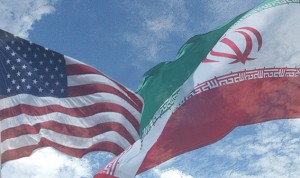 Two prominent American university professors say in the year 2014 Iran will challenge the US hegemony in the Middle East and the world.
Two prominent American university professors say in the year 2014 Iran will challenge the US hegemony in the Middle East and the world.�The Islamic Republic aims to replace American hegemony with a more multi-polar distribution of power and influence,� Flynt Leverett and Hillary Mann Leverett wrote in an article for the�goingtotehran.com�website.
They referred to Iran�s �strengths� like its stable position in the Middle East and its �indigenously generated political model integrating participatory politics and elections with principles and institutions of Islamic governance.�
�These strengths have enabled the Islamic Republic to withstand sustained regional and Western pressure, and to pursue a foreign policy strategy likely to reap big payoffs in 2014,� wrote the Leveretts, who are professors at the Pennsylvania State University School of International Affairs.
They said former US President Jimmy Carter�s �description of Iran as an island of stability� in the Middle East region still stands when compared to �Afghanistan, Bahrain, Egypt, Iraq, Jordan, Lebanon, Libya, Palestine, Syria, and Tunisia.�
The Leveretts suggest that 2014 is another �Year of Iran� as Tehran is pursuing strategies to convince�the West to recognize Iran�s right to a peaceful nuclear energy program.
�The West is increasingly challenged to come to terms with the Islamic Republic as an enduring entity representing legitimate national interests,� they wrote.
They noted that �partnering with Tehran� would require the US and its allies in Britain and France �to accept the Islamic Republic as the legitimate government of a fully sovereign state with legitimate interests.�
The Leveretts said �more US-instigated secondary sanctions that illegally threaten third countries doing business with Iran� could not force the Islamic Republic to abandon its nuclear energy program.
�Rather, Iran�s approach� seeks to make it easier for countries to rebuild and expand economic ties to the Islamic Republic even if Washington does not lift its own unilaterally-imposed sanctions,� they wrote.
By Press TV
The Iran Project is not responsible for the content of quoted articles.










